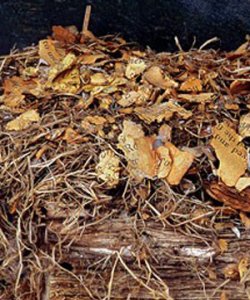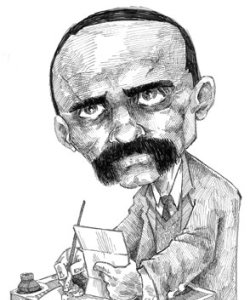Creative Copyrighting
Best-selling novelist Jonathan Lethem has stepped into the copyright spotlight with an unusual proposal that he hopes will make the industry think differently about copyright protection and how it's used.
Jump to navigation Skip to content
Articles from Poet & Writers Magazine include material from the print edition plus exclusive online-only material.
Best-selling novelist Jonathan Lethem has stepped into the copyright spotlight with an unusual proposal that he hopes will make the industry think differently about copyright protection and how it's used.
Page One features a sample of titles we think you'll want to explore. With this installment, we offer excerpts from Chemistry and Other Stories by Ron Rash and Music for Landing Planes By by Éireann Lorsung.
An author makes what many would consider the ultimate professional sacrifice in the name of writing and rediscovers how to spend his time offline.

Sample art from Bookworm, a collection of photos and collages of books destroyed by nature.
Small Press Points highlights the happenings of the small press players. This issue features Steerforth Press, Zoland Books, Zoland Poetry, MacAdam/Cage, and Counterpath Press.

Controversy surrounds Tupelo Press and its 2006 Dorset Prize after allegations of unfairness emerge from contest participants.

Ed Ochester, editor of the Pitt Poetry Series for nearly three decades, talks about the changes in poetry and publishing he's seen over the years.
Taking their cue from the film industry, in which a well-produced trailer is infinitely more valuable than a print advertisement or press release, commercial publishers such as HarperCollins and Houghton Mifflin are taking advantage of new technology to offer promotional videos on their Web sites to augment their traditional publicity campaigns.
This Page One features excerpts from Neck Deep and Other Predicaments by Ander Monson and The Unbinding by Walter Kirn.

A childhood bike trip leads Whitman impersonator Darrel Blaine Ford to a lifelong dedication to the legendary poet.
Literary MagNet chronicles the start-ups and closures, successes and failures, anniversaries and accolades, changes of editorship and special issues—in short, the news and trends—of literary magazines in America. This issue's MagNet features Document, Doubletake: Points of Entry, Interim, and Poetry Salzburg Review.
Literary MagNet chronicles the start-ups and closures, successes and failures, anniversaries and accolades, changes of editorship and special issues—in short, the news and trends—of literary magazines in America. This issue's MagNet features Oxford American, the Believer, Wholphin, McSweeney's, Rattapallax, the Reader, and Poetry Kanto.
Small Press Points highlights the happenings of the small press players. This issue features No Tell Books and Perugia Press.
Michael Stephen Fuchs doesn't seem particularly naive or susceptible to exploitation. The fast-talking writer has a successful day job as an Internet consultant, peppers his conversation with literary aphorisms, and, like many debut authors, can talk with an eloquence borne from personal experience about the iniquities of the publishing business. But according to some in the book trade, Fuchs has been suckered.
Executive director of Poets House Lee Briccetti talks about the relocation and expansion of the country's largest poetry library.
Not unlike European explorers five hundred years ago, the United States publishing industry is looking for a route to China. And, like those explorers, each company seems to be setting a different course.

Images of participants who tattooed one word from Shelley Jackson’s 2,095-word story, “Skin,” on their bodies as part of her “mortal work of art” project.
The Council of Literary Magazines and Presses unveils the Submission Manager, software used to accept and track online submissions, resulting in less waste and more efficiency for writers and editors alike.
This Page One features excerpts from Corrections to My Memoirs by Michael Kun and Home Remedies by Angela Pneuman.
When fiction writer Barry Eisler heard last summer that Kepler's Books in Menlo Park, California, would close after fifty years in business, his first reaction was a loud expletive. His second was an e-mail to owner Clark Kepler with an offer to help. "I used to see those big author photos in the window…and I was working on what would become my first novel," says Eisler, the author of the Jain Rain series of thrillers. "My fantasies of literary success were all based on doing book signings at Kepler's."
This installment of Page One features excerpts from The Children's Hospital by Chris Adrian and American Genius: A Comedy by Lynne Tillman.

A decade after the founding of Cave Canem, Eady speaks about the ways in which the organization has developed into a "safe haven for black poets."
Literary MagNet chronicles the start-ups and closures, successes and failures, anniversaries and accolades, changes of editorship and special issues—in short, the news and trends—of literary magazines in America. This issue's MagNet features Ploughshares, Calyx, Gargoyle, and American Short Fiction.

Taking cues from Letters to a Young Poet, published more than seventy years ago, the Letters to Poets project puts an updated spin on Rilke’s experiment in mentorship with organized correspondence between two distinct types of poets.